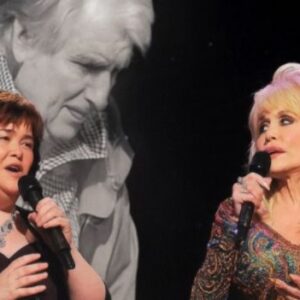“The Night Royalty Bared Its Soul: Princess Kate and Adele’s Duet That Shook the World”
It was supposed to be a quiet night.
A charity gala at Royal Albert Hall. Glittering gowns. Black ties. Whispered conversations over champagne and soft applause between performances. But no one—not even the most seasoned members of the Royal Family—could have predicted what would unfold before the stunned crowd.
Midway through the evening, the lights dimmed. A single piano note echoed across the hall. The opening chords of Adele’s “Someone Like You” stirred a familiar ache in the room. The audience settled in for what they thought would be a moving, but routine, performance.

As Adele sang the first verse, her voice—rich, aching, timeless—seemed heavier than usual. More fragile. And then she paused. Not long. Just enough for everyone to feel it. She turned slightly, eyes glistening under the lights, and extended her hand to the woman standing just out of the spotlight.
Princess Kate.
Gasps fluttered through the audience like wind through silk.
Kate stepped forward hesitantly, visibly emotional. Dressed in a deep navy gown that shimmered like still water, she took Adele’s hand—and the microphone.
And then, with a breath so small it could’ve gone unnoticed, she sang.

“Nevermind, I’ll find someone like you…”
The words trembled. But she didn’t stop.
Every syllable carried the weight of grief, of love, of everything unsaid. Kate wasn’t just singing. She was feeling. And as she sang, tears welled in her eyes—but she stayed with the song, line after line, as Adele gently harmonized beside her.
In the front row, Sir Elton John wiped his eyes. Behind him, Emma Thompson clutched a tissue. Even the most seasoned celebrities seemed stunned into stillness. The world had never seen this version of Kate before—not the poised future queen, not the polished public figure—but a woman laying bare her heart through music.
For a moment, time stopped.
It didn’t matter that her voice wasn’t trained. Or that she stumbled slightly on a note. It was real. It was vulnerable. And it was unforgettable.
When Adele reached for her hand during the final chorus, the crowd collectively held its breath. Two women—one a global superstar, the other a royal icon—stood shoulder to shoulder, voices rising together in a fragile, powerful harmony that cut straight through every layer of pretense.
The final note faded into silence.
No one moved.
Then came the standing ovation. Not polite, not rehearsed—visceral. People wept openly. Applauded until their hands stung. Even King Charles, watching from the royal box, was seen brushing away a tear.
By dawn, the performance had racked up over 32 million views online. Social media exploded. The hashtag #KateXAdele was trending in 47 countries. Fans from around the globe flooded timelines with reactions ranging from stunned disbelief to tearful gratitude.
“This wasn’t just a duet,” one user wrote. “It was healing.”
For many, it felt like more than music. It felt like a moment of collective catharsis—especially after years of headlines, pressure, and personal loss. Kate’s unguarded performance seemed to speak for every person who’d ever smiled through sorrow or kept going when they felt like crumbling.
The press dubbed it “the most unexpected royal moment of the decade.” Others called it “a royal reckoning with emotion.”
But perhaps Adele said it best afterward in a rare, heartfelt post:
“What she did tonight was braver than most standing ovations. She didn’t just sing with me—she shared her soul. And I’ll never forget it.”
Nor will the world.
Because sometimes, all it takes is one trembling voice in a silent room to remind us that even those born into castles feel pain… and even queens need to sing their sadness once in a while.




















